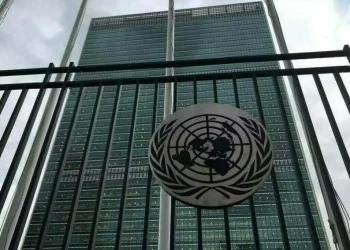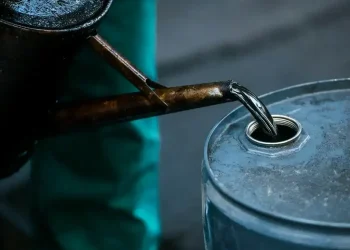- Donald Trump surrendered to the custody of US Marshals for his arraignment.
- He’s the first ex-president to be charged in federal court — and now the first to be arrested by the feds.
- Prosecutors say he violated the Espionage Act 31 times, obstructed justice, and lied to the FBI.
Former President Donald Trump entered custody ahead of his historic court appearance Tuesday to face federal charges that he withheld classified records from the government after leaving office and attempted to obstruct their return.
At Trump’s court hearing on Tuesday in Miami federal court, US Magistrate Judge Jonathan Goodman is expected to let the former president walk free ahead of an expected criminal trial, rather than remain in jail or have a bond imposed upon him.
Trump was expected to plead not guilty to the 37 criminal counts brought against him in an indictment from Special Counsel Jack Smith.
Trump is the first former president to be charged by federal prosecutors, and now the first former president to be forced to show up in a federal courthouse and proclaim his innocence. Secret Service agents escorted him to his court appearance as crowds looked on.
On Friday, the court unsealed a 38-count indictment against Trump and Waltine Nauta, one of his personal aides. Prosecutors accused Trump of violating the Espionage Act 31 times by illegally holding onto sensitive national security documents in his Mar-a-Lago home when he left the office of the presidency in January 2021, and refusing to hand them back to the National Archives. Trump also conspired to obstruct justice, lied to law enforcement, and violated three different statutes related to withholding and concealing government records, according to the indictment.
Nauta, a co-defendant in the case, is expected to enter a not guilty plea Tuesday to the six counts against him, also related to how he handled the documents.
Win McNamee/Getty Images
Trump held on to sensitive national security documents, prosecutors say
This is the second pending criminal case against Trump. In April, the Manhattan District Attorney’s office brought a 34-count indictment against him alleging he illegally falsified business records with payments to Stormy Daniels ahead of the 2016 election. Trump sought to keep the porn star silent before voters went to the polls about the affair she says she had with him.
Trump has railed against both prosecutions as politically motivated. Smith was appointed to his special counsel role by Attorney General Merrick Garland, and Trump and his allies have baselessly asserted that the indictment was engineered by President Joe Biden. Bragg is an elected Democrat.
Smith’s highly detailed indictment included photos that appear to show how documents were carelessly stored in Mar-a-Lago, including in a shower. It also included narrative details that explained how he tried to use his lawyers and Nauta to hide the documents from the FBI when they searched for them.
The precise nature of the 31 documents that are the subject of the indictment remains the subject of some mystery. The records contain information about US nuclear programs and “potential vulnerabilities of the United States and its allies to military attack,” among other secrets, according to the indictment. Eight documents were considered so sensitive that even their classification markings were redacted from court filings.
The case is set to proceed before US District Judge Aileen Cannon, a Trump appointee who issued extraordinary rulings that slowed down the Justice Department’s investigation into Trump last year before an appeals court overturned her decisions.
Cannon will have the power to shape how the case moves forward, including whether to schedule a trial ahead of the 2024 election, in which Trump is currently the frontrunner for the Republican nomination.
She’ll also decide whether to dismiss all or some of the counts before the case goes to trial, decide the scope of the evidence and legal arguments the lawyers are permitted to bring before a jury, and ultimately choose which jurors to seat.
Trump is still building his legal team. Two of the lawyers representing him in the investigation, James Trusty and John Rowley, resigned the day after he was indicted.










 American Dollar Exchange Rate
American Dollar Exchange Rate